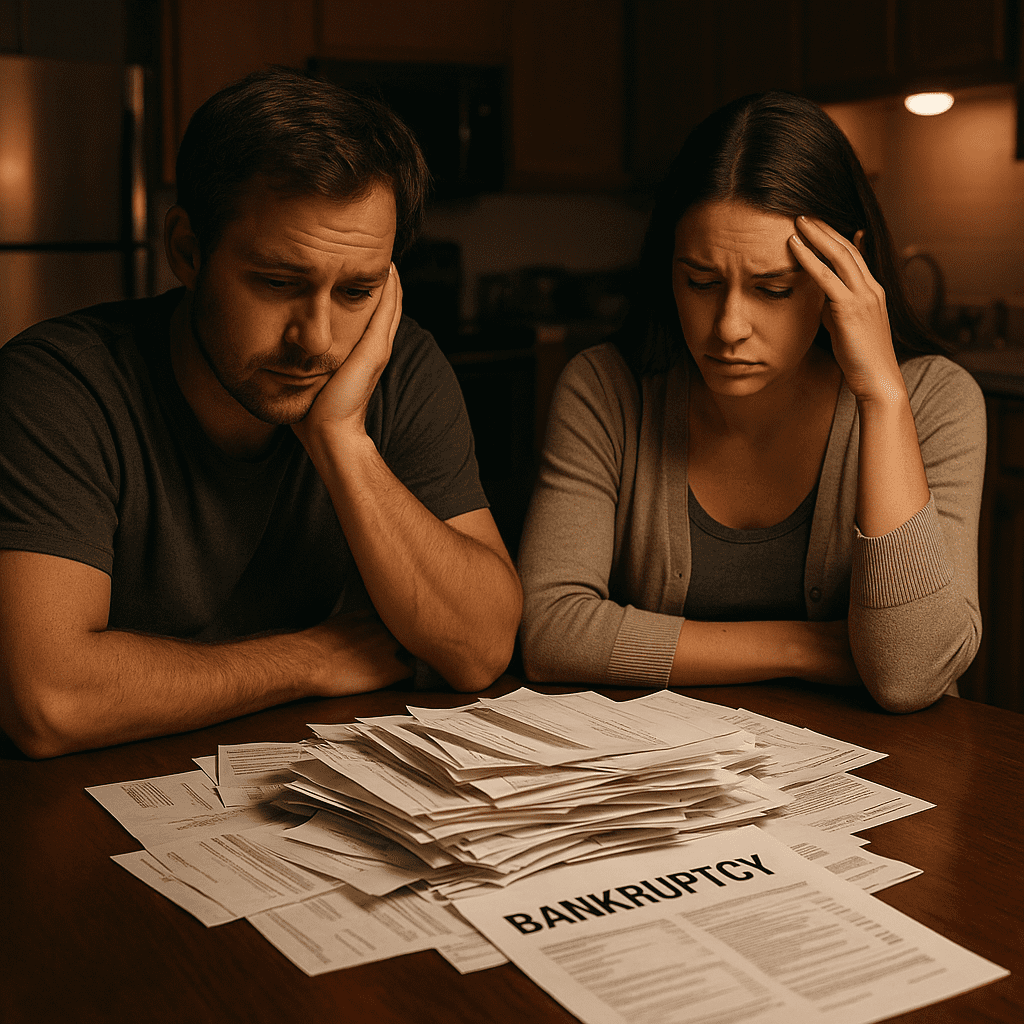
Bankruptcy and Homeownership in Florida: What Homeowners Need to Know
Filing for bankruptcy in Florida can help protect you from overwhelming debt, but if you own a home, there are major issues you must consider. Florida’s generous homestead exemption can protect your property, yet your mortgage lender, HOA, and taxes still play a big role in whether you keep your home.
1. Risk of Losing the Home
Florida’s homestead exemption protects unlimited equity (within acreage limits), but you must still pay your mortgage. In Chapter 7, if you’re behind, foreclosure may still occur. In Chapter 13, you can repay arrears over 3–5 years.
Example: A homeowner in Miami with $250,000 equity filed Chapter 7. Equity was protected, but foreclosure continued because they were 6 months behind on payments.
2. Impact on Mortgage and Liens
Bankruptcy removes personal liability but not the mortgage lien. Lenders can foreclose if payments aren’t made. Chapter 13 may allow lien stripping of second mortgages if the home’s value is below the first mortgage balance.
3. Credit and Future Borrowing
Bankruptcy impacts credit for 7–10 years. FHA loans typically require a 2-year wait; conventional loans may need 4 years.
4. HOA or Condo Fees
Past-due HOA fees are discharged, but new fees after filing must be paid. HOAs can still foreclose for unpaid fees even post-bankruptcy.
5. Homestead Exemption Rules
Must own the home for at least 1,215 days (about 3.3 years) to claim unlimited equity. Otherwise, federal cap (~$189,000) applies.
6. Property Taxes and Insurance
Delinquent property taxes aren’t fully dischargeable. Insurance must remain active; if not, lenders may add costly force-placed coverage.
7. Timing and Planning
Pre-bankruptcy property transfers may be reversed as fraudulent. Filing before a foreclosure sale can stop the sale; filing after cannot.
8. Emotional and Practical Strain
Bankruptcy is public record and may affect job applications or rentals. Many homeowners find it emotionally stressful but necessary to reset finances.
9. Legal Costs
Attorney fees vary (Chapter 13 usually costs more). Weigh cost versus benefit of saving the home versus surrendering it.
10. Deficiency Judgments
Bankruptcy can discharge deficiencies after foreclosure. Without bankruptcy, lenders may pursue the balance due after a short sale or auction.
Practical Example
Homeowner in Orlando owed $300,000, property value $280,000. Filing Chapter 13 allowed them to stop foreclosure, repay $20,000 arrears over 5 years, and keep the house.
FAQs
- Can I keep my home if I file bankruptcy in Florida? Yes, if you stay current on mortgage payments and meet homestead exemption rules.
- Does bankruptcy stop foreclosure? It pauses foreclosure temporarily (automatic stay) but ongoing payments must continue.
- Can HOA fees still lead to foreclosure? Yes, for post-bankruptcy fees.
- Do I lose my property taxes? No, but delinquent taxes must be repaid or they become liens.
Bancarrota y Propietarios en Florida: Lo Que Deben Saber
Declararse en bancarrota en Florida puede ayudar a manejar deudas abrumadoras, pero si posee una vivienda, hay factores clave que considerar. La exención de vivienda de Florida protege su propiedad, pero la hipoteca, el condominio y los impuestos siguen siendo cruciales.
1. Riesgo de Perder la Vivienda
La exención protege el valor acumulado, pero debe seguir pagando la hipoteca. En el Capítulo 7, si está atrasado, la ejecución puede continuar. En el Capítulo 13, puede ponerse al día en 3–5 años.
Ejemplo: Un propietario en Miami con $250,000 de valor acumulado presentó el Capítulo 7. El valor estuvo protegido, pero perdió la casa por no pagar 6 meses de hipoteca.
2. Impacto en Hipoteca y Gravámenes
La bancarrota elimina la responsabilidad personal, pero no el gravamen hipotecario. El banco aún puede ejecutar la hipoteca si no se pagan los plazos.
3. Crédito y Préstamos Futuros
La bancarrota afecta el crédito 7–10 años. Los préstamos FHA requieren 2 años de espera; los convencionales hasta 4 años.
4. Cuotas de HOA o Condominio
Las cuotas vencidas se descargan, pero las nuevas deben pagarse. El HOA puede ejecutar incluso después de la bancarrota.
5. Reglas de Exención de Vivienda
Debe ser propietario por al menos 1,215 días (3.3 años) para exención ilimitada. Si no, aplica límite federal (~$189,000).
6. Impuestos y Seguro
Los impuestos atrasados no se descargan completamente. El seguro debe mantenerse activo; de lo contrario, el banco puede imponer uno costoso.
7. Tiempo y Planificación
Las transferencias previas pueden revertirse como fraudulentas. Declararse antes de la subasta detiene la venta; después no.
8. Estrés Emocional y Práctico
La bancarrota es pública y puede afectar solicitudes de empleo o alquiler. Muchos propietarios la ven como un reinicio necesario.
9. Costos Legales
Los honorarios de abogados varían (el Capítulo 13 suele costar más). Evalúe costo versus beneficio.
10. Juicios por Deficiencia
La bancarrota puede eliminar deficiencias tras ejecución. Sin bancarrota, el banco puede cobrar el saldo pendiente.
Preguntas Frecuentes
- ¿Puedo quedarme con mi casa si me declaro en bancarrota en Florida? Sí, si mantiene los pagos al día y cumple la exención de vivienda.
- ¿La bancarrota detiene la ejecución? La pausa temporalmente (suspensión automática) pero debe seguir pagando.
- ¿Las cuotas del HOA pueden causar ejecución? Sí, por cuotas posteriores a la bancarrota.
- ¿Pierdo mis impuestos sobre la propiedad? No, pero deben pagarse los atrasados o se convierten en gravamen.
Envíame un mensaje en WhatsApp para orientación personalizada